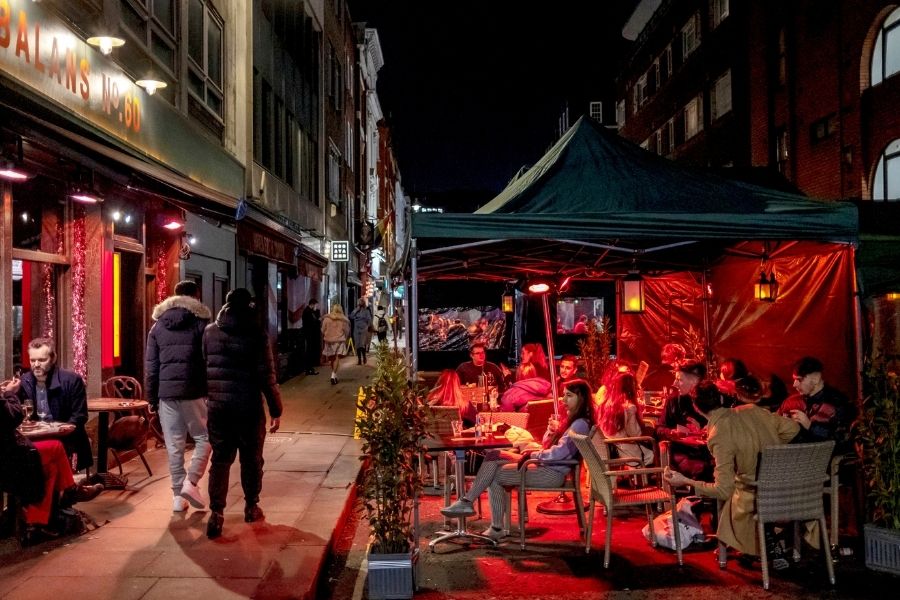
Waste, negligence and cronyism: Inside Britain's pandemic spending
In the desperate scramble for protective gear and other equipment, politically connected companies reaped billions
 Patrons under a temporary canopy in the street outside a bar in the West End of London, on Tuesday, Dec. 15, 2020. On Wednesday, Prime Minister Boris Johnson stuck by his pledge to lift some important coronavirus restrictions for a few precious days between Dec. 23 and 27 — a decision that attests to his deep-seated desire not to be seen as the Ebenezer Scrooge of Downing Street, as well as to the atavistic appeal of the Christmas holiday in this otherwise secular country. (Andrew Testa/The New York Times)
Patrons under a temporary canopy in the street outside a bar in the West End of London, on Tuesday, Dec. 15, 2020. On Wednesday, Prime Minister Boris Johnson stuck by his pledge to lift some important coronavirus restrictions for a few precious days between Dec. 23 and 27 — a decision that attests to his deep-seated desire not to be seen as the Ebenezer Scrooge of Downing Street, as well as to the atavistic appeal of the Christmas holiday in this otherwise secular country. (Andrew Testa/The New York Times)
LONDON — When the pandemic exploded in March, British officials embarked on a desperate scramble to procure the personal protective equipment, ventilators, coronavirus tests and other supplies critical to containing the surge. In the months following those fevered days, the government handed out thousands of contracts to fight the virus, some of them in a secretive “VIP lane” to a select few companies with connections to the governing Conservative Party.
To shine a light on one of the greatest spending sprees in Britain’s postwar era, The New York Times analyzed a large segment of it, the roughly 1,200 central government contracts that have been made public, together worth nearly $22 billion. Of that, about $11 billion went to companies either run by friends and associates of politicians in the Conservative Party, or with no prior experience or a history of controversy. Meanwhile, smaller firms without political clout got nowhere.
“The government had license to act fast because it was a pandemic, but we didn’t give them permission to act fast and loose with public money,” said Meg Hillier, a lawmaker with the opposition Labour Party and chairwoman of the powerful Public Accounts Committee. “We’re talking billions of pounds, and it’s quite right that we ask questions about how that money was spent.”
The procurement system was cobbled together during a meeting of anxious bureaucrats in late March, and a wealthy former investment banker and Conservative Party grandee, Lord Paul Deighton, was later tapped to act as the government’s czar for personal protective equipment.
Eight months on, Deighton has helped the government award billions of dollars in contracts –– including hundreds of millions to several companies where he has financial interests or personal connections.
©2019 New York Times News Service




